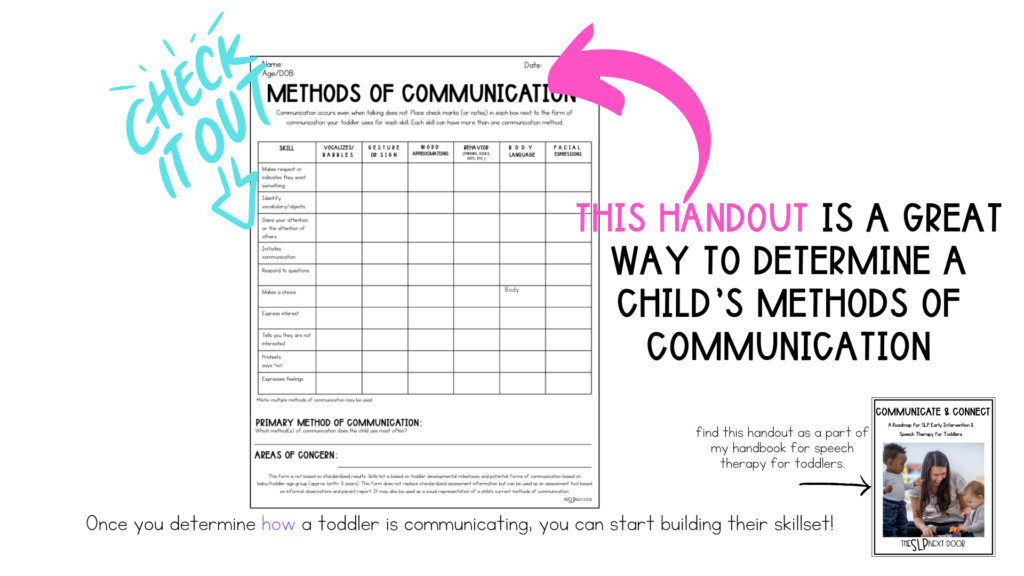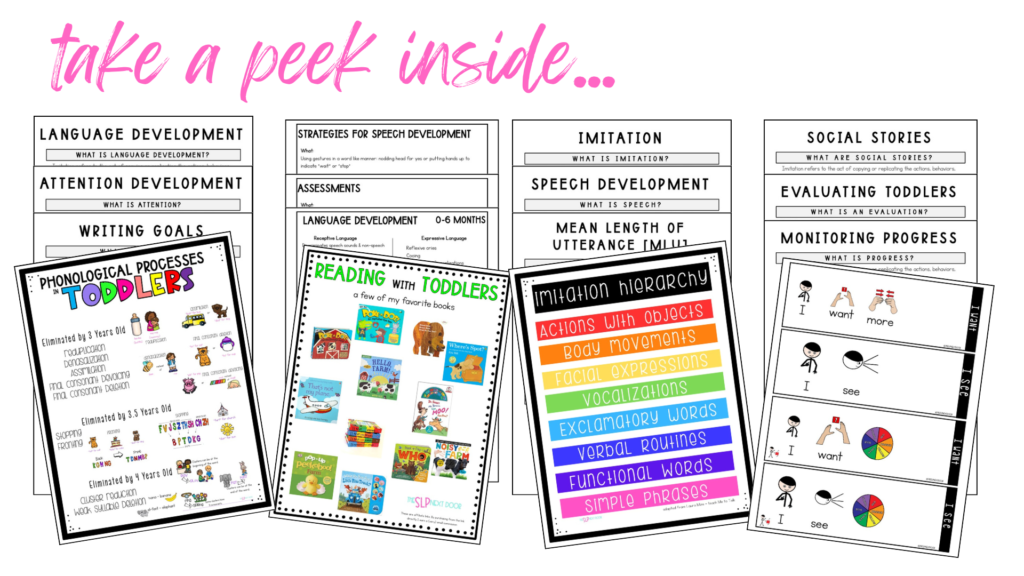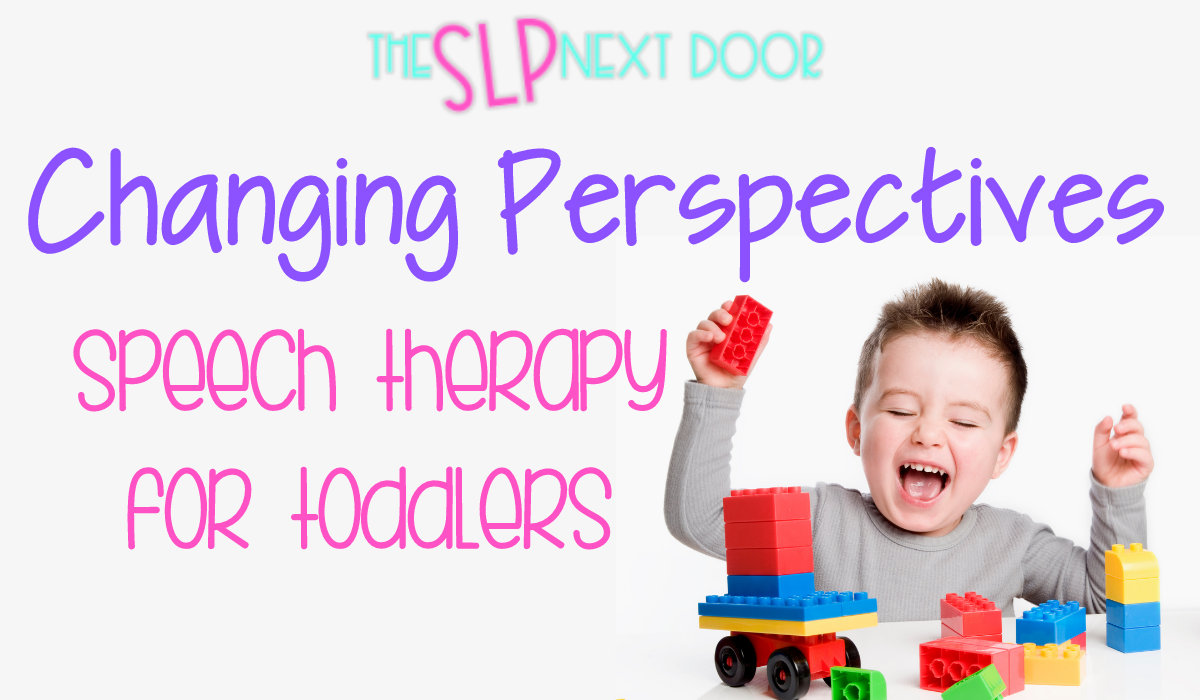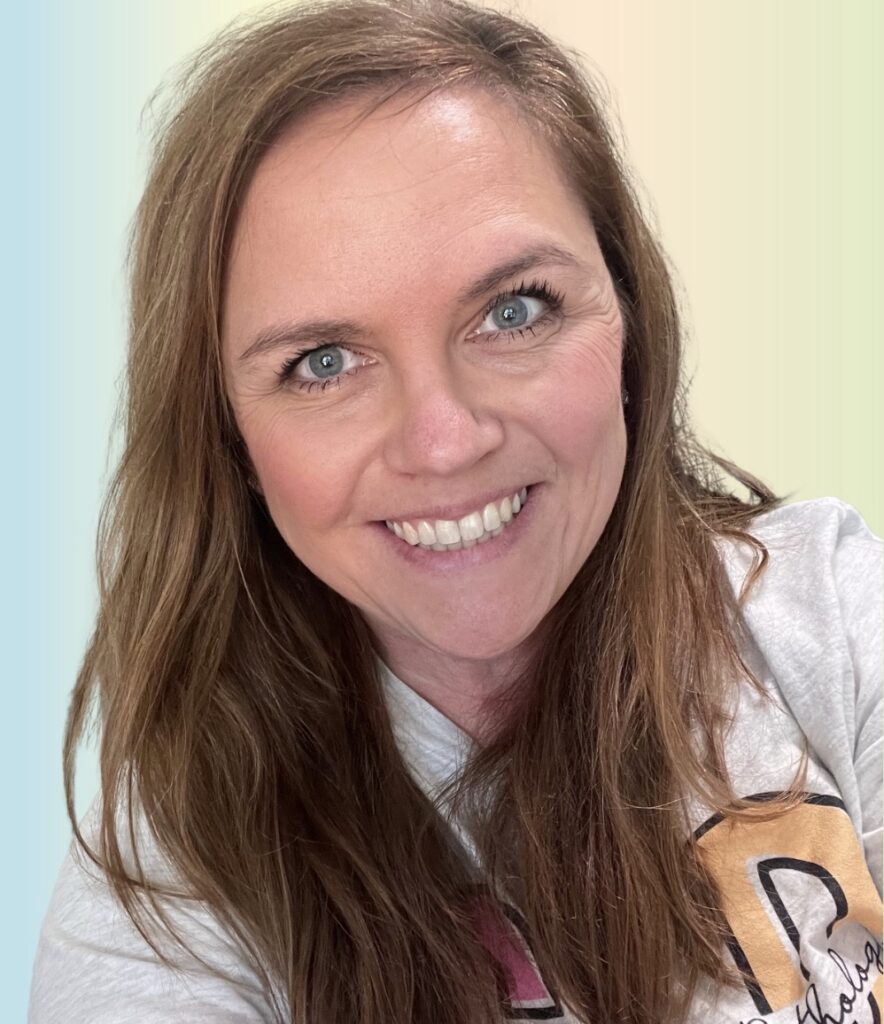I always ask parents, “How is your toddler communicating with you?” Asking this question helps them begin to look at their toddlers from a different perspective. Speech therapy for toddlers requires a complete shift in your mindset. With this population, the first objective for speech therapy should be improving their overall communication skills.
One of the first things I do when I meet a toddler is determine how they communicate.
Why?
Communication happens in a variety of ways: verbal speech, body language, devices (including our own personal devices), and beyond.
Speech and Language Evaluation
Any time I do a speech and language evaluation, parents talk about what their toddlers aren’t doing:
“I thought everything was alright until she was around other kids, and then I realized she wasn’t doing what they did.”
“He doesn’t say anything; he just points and grunts.”
“She has a few signs and gestures but won’t say the words!”
“I know he’s trying to tell me something, but I have no idea what it is and he’s throwing fits when he doesn’t get what he wants”.
Let me add here that there is no such thing as a bad toddler. There is such a thing as a frustrated, overstimulated, or overwhelmed toddler- but toddlers themselves are not bad or manipulative.
Toddler Communication
It is important to determine how a toddler communicates so that we know where to build from.
When I ask parents, “How is your toddler communicating with you?” I always see a shift. Asking this question brings an opportunity to educate and remind parents that, even as grown-ups, we use a variety of skills to communicate – and so do our toddlers. It also helps them to look at their toddlers from a different perspective.
Initially, it doesn’t matter if their form of communication is what we call “the right way.” What matters is that we understand how the toddler is getting their needs met. Determining how a toddler communicates (or gets their message across) should be done in evaluations, but it is also something that most standardized tests do not include when determining strengths and weaknesses.
Here’s how you can do it: when you give a speech and language evaluation, you should also ask parents a few questions:
“How does your child let you know they want something?”
“Does your child make choices? If so, how do they let you know their choice?”
“What happens when your child does not get what they are asking for?”
I like to use a checklist. It’s a great way to provide parents (and you) a visual representation of how a child is communicating.

Speech Therapy Goals
It can be hard to determine what goals are appropriate when it comes to speech therapy for toddlers, right? Those standardized assessments list so many deficits and delays that it can be hard to determine where to start.
The important question is: what can we do that is functional while increasing their communication? Choose goals that can be easily implemented into speech therapy activities. Ask parents and caregivers for their input! Find out their expectations, discuss strategies that easily fit into their routine, and incorporate their ideas into your plans!
As toddlers progress with their speech therapy goals, you will gain more insight into strengths and weaknesses in development and can begin to get more specific with goals.
Remember, the ultimate goal of a speech and language evaluation, especially in toddlers, is to determine their language development and methods of communication. The main goal for this age group is to improve their functional communication skills. Whatever that looks like!
Want to know more about speech and language evaluations, language development milestones, prelinguistic skills, and other important elements to early intervention speech and language? Check out my handbook, Communicate & Connect! This research-backed handbook is the perfect addition to your SLP early intervention caseload. With handouts that are great for quick reference and sharing with parents, you’ll always be prepared to answer those tricky questions and provide resources to encourage parent involvement!





One Response